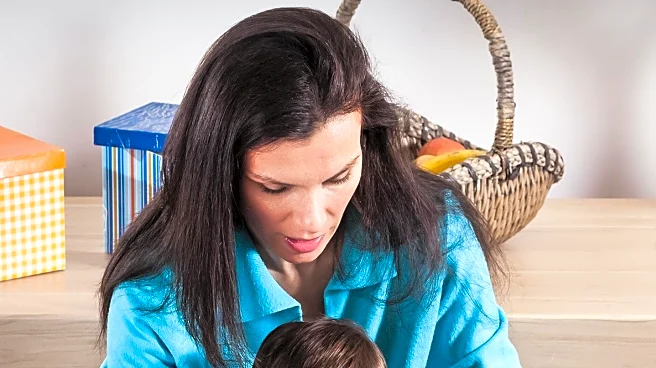What's Happening?
A child psychologist has conducted a study involving over 200 parent-child relationships to identify practices that contribute to exceptional social skills in children. The study highlights nine key behaviors that parents can adopt to foster emotional safety and authentic connections at home. These practices include openly discussing feelings, modeling empathy, fostering confidence, teaching conflict resolution, validating children's feelings, recognizing social cues, allowing children to solve conflicts independently, treating mistakes as learning opportunities, and prioritizing listening over lecturing. These approaches help children develop emotional vocabulary, empathy, resilience, and the ability to sustain healthy relationships.
Why It's Important?
The development of strong social skills in children is crucial for their success in personal and professional relationships. By adopting these parenting practices, parents can help their children become empathetic, emotionally intelligent adults who are capable of navigating complex social dynamics. This is increasingly important in today's world, where emotional intelligence is valued in various sectors, including education and the workplace. Children who learn these skills early are better equipped to handle interpersonal challenges and contribute positively to society.
What's Next?
Parents and educators may consider integrating these practices into parenting and educational programs to enhance children's social development. Workshops and resources could be developed to guide parents in implementing these strategies effectively. Additionally, further research could explore the long-term impact of these practices on children's social and emotional well-being.
Beyond the Headlines
The study underscores the importance of emotional safety and authentic connection in child development, challenging traditional notions that focus solely on memorizing polite phrases. It highlights a shift towards conscious parenting, where emotional health is prioritized alongside academic and physical development. This approach may lead to broader societal changes in how children's education and upbringing are approached.










